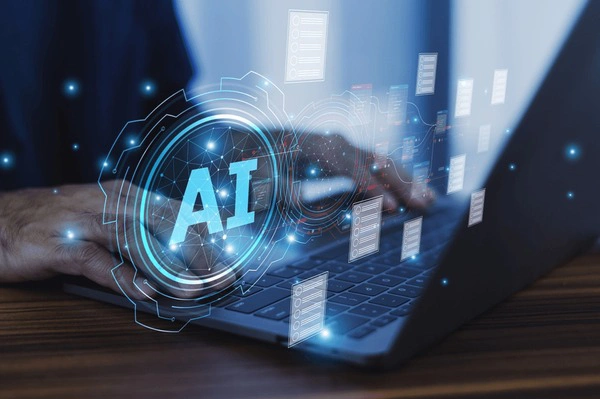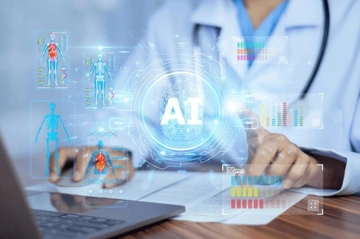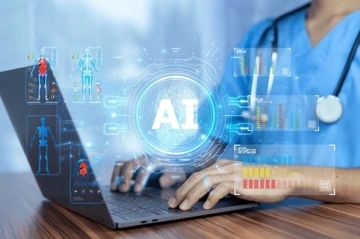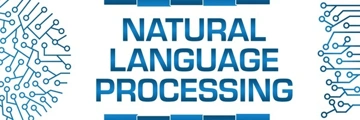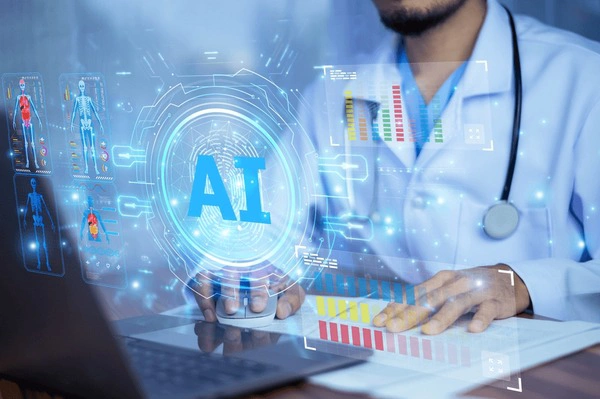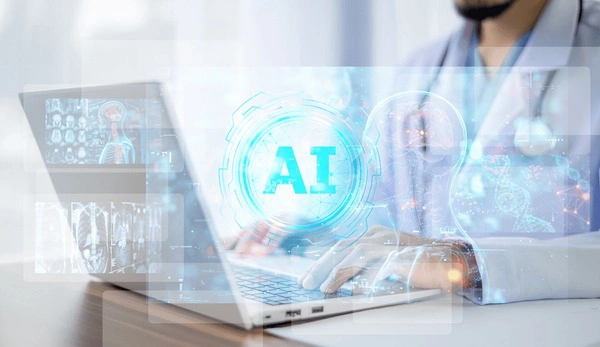
Harnessing AI: Revolutionizing Healthcare Administration
AI is reshaping healthcare administration by automating tasks, enhancing efficiency, and cutting costs, enabling a more patient-focused approach.
Emma Lane
29/11/2024 - 7 months ago

The Role of AI in Healthcare Administration
Artificial Intelligence, or AI, is making waves in the healthcare industry, particularly in administrative tasks. AI refers to computer systems that can perform tasks usually requiring human intelligence, like decision-making, problem-solving, and learning. In healthcare, AI can manage large amounts of data quickly and accurately, which is often overwhelming for humans. This capability is transforming how healthcare facilities handle administrative duties, making them faster and more efficient.
One of the key areas where AI shines is in scheduling and managing appointments. Traditionally, scheduling can be a time-consuming task, prone to errors and conflicts. AI systems can analyze patterns in patient visits and staff availability, optimizing the scheduling process. This leads to fewer missed appointments and better resource management. For patients, this means shorter waiting times and more streamlined visits.
Moreover, AI can assist in billing and coding, which are critical components of healthcare administration. These tasks often involve complex rules and can be prone to human error. AI algorithms can quickly process billing information, ensuring accuracy and compliance with regulations. By reducing errors, healthcare providers can save money and focus more on delivering quality care to patients. This efficiency translates to cost savings, which can be passed on to patients in the form of lower healthcare costs.
Improving Efficiency with AI
AI's ability to automate repetitive tasks is a game-changer for healthcare workers. Many administrative tasks, like data entry and record keeping, are essential but can be tedious and time-consuming. AI systems can handle these tasks swiftly, freeing up healthcare professionals to concentrate on patient care. This shift not only improves efficiency but also enhances job satisfaction among healthcare staff.
In addition to handling routine tasks, AI can provide valuable insights through data analysis. By examining vast amounts of patient data, AI can identify trends and patterns that might not be immediately noticeable. For instance, AI can alert healthcare providers to potential outbreaks of diseases or track the effectiveness of treatments over time. Such insights allow healthcare organizations to make informed decisions and improve patient outcomes.
Furthermore, AI can assist in managing electronic health records (EHRs). These records are crucial for tracking patient histories and treatment plans, but they can be challenging to manage manually. AI systems can organize and update EHRs efficiently, ensuring that healthcare providers have access to accurate and up-to-date information. This accuracy is vital for making informed medical decisions and providing personalized patient care.
Reducing Costs Through AI Implementation
Integrating AI into healthcare administration not only boosts efficiency but also significantly cuts costs. By automating routine tasks, healthcare facilities can reduce the need for extensive administrative staff. This reduction in manpower requirements translates into substantial savings on salaries and benefits, allowing funds to be allocated to other areas of patient care.
AI also minimizes costly errors associated with manual data handling. Inaccurate billing, scheduling conflicts, and misplaced records can lead to financial losses and patient dissatisfaction. By ensuring precision in these areas, AI helps healthcare facilities avoid unnecessary expenses and improve patient trust. Moreover, accurate data management leads to better inventory control, reducing waste and saving money on medical supplies.
By streamlining operations, AI can improve the overall financial health of healthcare organizations. This improvement can lead to lower healthcare costs for patients, making medical care more affordable and accessible. As healthcare facilities save money through AI-driven efficiencies, they can invest in advanced medical technologies, further enhancing patient care and outcomes.
Challenges and Future Prospects of AI in Healthcare
Despite its numerous benefits, the use of AI in healthcare faces certain challenges. One major concern is data privacy and security. Since AI systems rely on large amounts of patient data, ensuring this information is protected from breaches is crucial. Healthcare providers must implement strict security measures to safeguard sensitive data and maintain patient trust.
Another challenge is the integration of AI systems into existing healthcare infrastructure. Many healthcare facilities have established processes and technologies that may not easily accommodate new AI solutions. Transitioning to AI systems requires time, resources, and training for staff to adapt to new workflows. However, once integrated, AI can significantly enhance the efficiency and effectiveness of healthcare services.
Looking to the future, AI has the potential to revolutionize healthcare administration even further. As technology advances, AI systems are expected to become more sophisticated, offering deeper insights and more comprehensive solutions to administrative challenges. With continued innovation and investment, AI could help create a more efficient, cost-effective, and patient-centered healthcare system for all.
